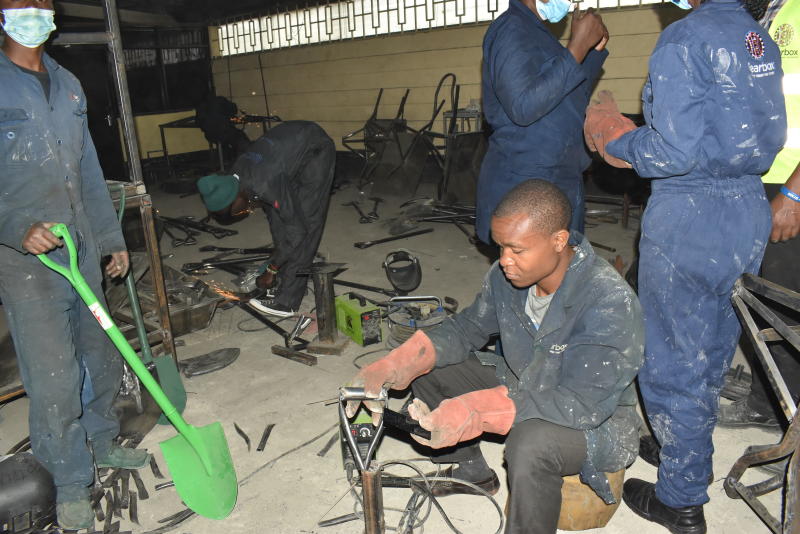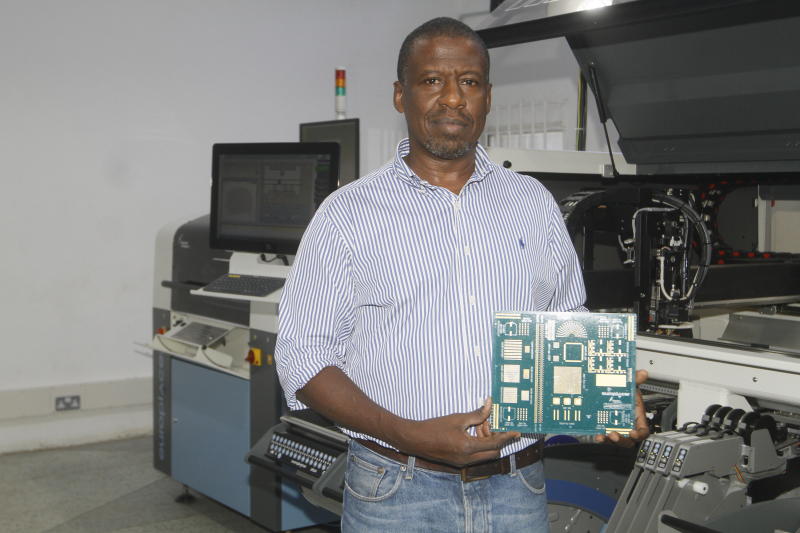
How many dreams go up in smoke in Africa because the dreamers, with all their potential and determination, lack a way to transform these dreams into reality?
How many young innovators in Kenya, a country whose digital exploits are easily the envy of most of the rest of Africa, are still languishing in doubt and are hopeless for lack of funding and other forms of technical support?
When Erastus Mong’are and like-minded partners founded StartUpAfrica, they had these questions in mind. Mong’are was in Kenya after the disputed 2007/08 and the ruin that was desperate unemployed youth triggered him to think of a solution.
“We strongly believe that the challenge of youth unemployment in Africa, which is seen by many as a ticking time bomb waiting to explode is actually a big opportunity for entrepreneurship and thus job creation,” he says.
StartUpAfrica, registered both in Kenya and the US, is a platform whose mission is to have aspiring youth entrepreneurs make sense of anything, from their business ideas to strategies for implementing them, mentorship and availing seed funding.
A business concept
Participants get help from the time they sign into any of StartUpAfrica’s programmes, where they have two routes to accessing this help.
“Students are given three to four months of learning, leading to a business concept. There is intense training before an incubation stage, after which viable ideas are connected to further help, including funding,” says Mong’are.
The students are then guided in their business.
Non-students submit their business ideas which are scrutinised for viability, and then intense entrepreneurship training follows. They can then be taken through an exchange programme, and incubation if necessary, before the viable ideas are connected to further help, either in-kind services or in funding. They can email StartUpAfrica for a start.
StartUpAfrica, which has been in existence for 10 years (it celebrates its 10th anniversary on October 28) and which has benefited over 18, 000 people directly and over 30,000 indirectly, will help business people who have a proof of concept build working models.
On its website, StartUpAfrica, whose main mission is to support youth in building business skills and in endeavours that foster financial independence, create jobs and grow economies, says by 2030, it should have engaged 10 million club participants, create one million startups, five million jobs and investing $5 billion (Sh543 billion) seed capital.
As this happens, in Nairobi’s Industrial area, another firm is helping trained engineers and people with the gift of engineering but no training in the same, to bring to life their ideas.
GearBox was founded as a not-for-profit innovation hub in 2014, primarily to give engineers with problem-solving ideas a platform to prototype, training them on the finer details of their craft and catapulting them into market.
One of the masterminds of this innovation hub is Kamau Gachigi, who is its chief executive, and who also heads National Industrial Training Authority (NITA), a semi-autonomous State agency.
Dr Gachigi taught at University of Nairobi’s mechanical engineering department for 14 years. There, he realised that Kenya needed some very important adjustments in training of students to help graduate engineers transition from school to the workplace.

National innovation system
“I realised that Kenya does not have a national innovation system. These innovation systems have been defined by researchers as very important for industrialisation. I realised that we need a system that is constantly auditing population for talent, and the talent can express itself commercially.”
Now, innovators pay a subscription fee to access machines at GearBox.
“Anyone can use our facilities to prototype. They will pay Sh10,000 a month and then they can come any day and every day after being trained on how to use the machines and also matters basic safety.”
GearBox Academy, in which students learn digital design and fabrication, embedded systems, artificial intelligence and machine learning, industrial Internet of Things, workshop technology (a mix of analogue and digital tools), robotics, virtual and augmented reality was started to save young innovators who could not afford the Sh10,000 fee, or who did not know where exactly to begin and were thus bound to take a lot of time trying out.
Dr Gachigi says there are a lot of brilliant people doing jua kali manufacturing, but that limits their growth. Prototyping at GearBox expands their scope of exploration.
“They cannot be viewed as creditworthy, and you know you cannot become one of the top industrialists through jua kali. That is why we started this, to give the engineer a good working prototype of their idea. With a good working prototype, you can do a demo,” Dr Gachigi says.
Y”ou can go to the field and get a good UX, user experience. You can get five potential customers and let them use the product and they can tell you if it is working, and when you get the feedback you adjust the design to fit the feedback and so on and so forth, with the interative process making you a product that fits the marketplace. That is how you make successful products, having user or human centred design.”
He says the foremost problems that affect people with ideas locally are access to machines, second is understanding human-centred designs (if a marketplace really needs that thing).
“We started to teach human-centred design (HCD). But we realised there is a certain class of people already doing that in Kenya. Young people in good universities elsewhere are being trained through specific courses to create solutions to the developing world. They go to where masses are and study what people need.
“They belong to an innovation system that works. There is a lot of money looking for ideas to fund, so once they pitch their ideas, they are funded. They come back and before we know it, they have companies started with our engineers.”
GearBox was made to solve such problems. To allow people with ideas execute them before someone else can scoop them, taking advantage of the former’s lack of opportunity.
The company has mechanical, electronics and rapid prototyping workshops. It is not only graduate engineers that GearBox caters for. They also train makers, people that have the gift of engineering but did not pursue higher education to specialise in that specific science.
“Sometimes all these spaces are called Makerspaces, because we empower makers. People that can make things but are not engineers. One could be a neurosurgeon or a standard eight leaver, but have a gift in engineering. We help them all. They engage at a high level,” says Dr Gachigi.
So far, around 180 companies have gone through GearBox. Hundreds of prototypes have also passed through them. They have incubated over 30 companies and helped over 150 companies in need of HCD.
The GearBox Academy charges between Sh40,000 and Sh120,000 for 20 contact hour course, which all depend on students’ availability.
Payment is dependent on the cost of the lecturer, and the cost that GearBox incurs to run the course. John Omo, the secretary general of the African Telecommunication Union (ATU), a specialised agency of the African Union, says as long as stakeholders across the continent such as regulatory authorities, entrepreneurial support organisations, incubators, accelerators and learning institutions do not come together to support innovation, Africa will remain starved of a promising future.
“Although Africa has proven its potential as a fast rising home to brilliant innovations, many innovators in the continent are struggling. Opportunities are hard to come by, and resource allocation to what could be viable trend-shifting ideas, is a mirage,” says Omo.
“We must admit that the process of innovation is complex and for innovators, especially young ICT innovators to thrive, they require resources, capacity building, effective policies, valuable networks, cultural change and a conducive economic environment. For all these factors to be present within an innovation ecosystem, all stakeholders need to work together.”
It seems companies are waking up to this call. Recently, Kenya Airways launched the Fahari Innovation Hub, a centre for innovation that will act as a springboard for new ideas and data-driven innovations to accelerate impact-driven solutions that are expected to address societal and business challenges.
And Kenya Industrial Estates’ mandate remains to “to facilitate the development and incubation of micro, small and medium enterprises (MSMEs) countrywide by establishing industrial parks, providing credit and business development services (BDS) in a sustainable manner.”

No comments:
Post a Comment